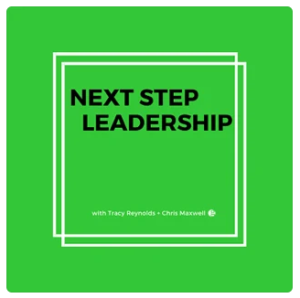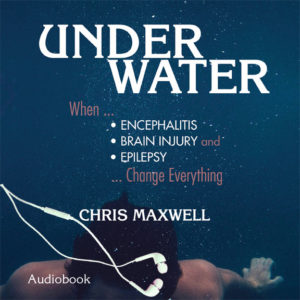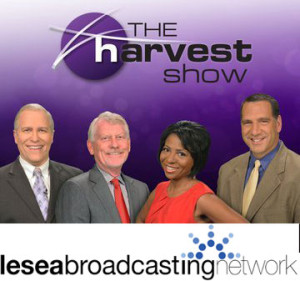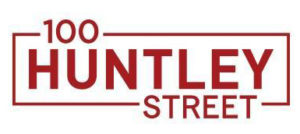Chris Maxwell: Thanks for having a conversation about poetry. Let’s begin by you telling us about the “Poetry Lockdown” readings. What is it?
Zach Czaia: Thanks for talking with me, Chris! #poetrylockdown is an ongoing series of videos where I sample a whole bunch of poems, one by one, that have nourished me. I read the poem aloud, and then say a little bit about why I admire or love the poem. I started doing this on a daily basis at the beginning of the pandemic, and I’ve tapered off to once or twice a week now.
Chris: What inspired you to begin the readings and how have you endured this long?
Zach: Oh, I haven’t had to endure much with this! To be honest, I think the series, and the virtual community that has built up around it has helped sustain me during some lonely moments in the pandemic. I started the series in mid-March, just after the pandemic began to close things down here in Minneapolis. (I’m a high school English teacher and we have been fully remote since then.) Those Romans, singing to each other across the balcony at the height of the lockdown in Italy, they inspired me. I thought, maybe poetry, too, can offer that kind of consolation. I tried it once, and got hooked. I love reading poetry out loud, and sharing it with people.
Chris: What have been your favorite poems to read?
Zach: I definitely could NOT name a favorite poem. I can tell you that doing this series has introduced me to a whole bunch of poets I didn’t know of before. And that has been a real gift. How could I not have read the work of people like Ladan Osman, Aracelis Girmay, or Adelia Prado? But I hadn’t. So, having this regular practice of reading and talking about poems made it so I was naturally expanding the kind of poems I was reading.
My own bias for poetry is for poems that tell stories and “get to the heart” of whatever is on a poet’s heart or mind. I don’t have a lot of patience for small-talk in a poem. And I also get bored if a poem is so obscure I have no way in to it.
One of my favorite things about doing the #poetrylockdown is the way it has facilitated connections and conversations between poets and new readers. (And sometimes as I mentioned above, I’m the new reader.) So I want to be sure and say a big THANK YOU to a slew of wonderful living poets who agreed to respond to letters my junior and senior students wrote them about a poem the poets wrote that moved them. How cool was it for me to be the middle-man setting up a meeting between these amazing poets and my talented and thoughtful students? It was very cool indeed.
So, let me take this as a good opportunity to name and thank these wonderful and generous living poets who corresponded with my students: Spencer Reece, Kai Coggin, Isha Camara, Katrina Vandenberg, Deborah Keenan, Michael Kleber-Diggs, Teri Cross Davis, Phillip Metres, Joseph Brown, SJ (AKA Luke), Dana Gioia, Eric Gamalinda, Maceo Montoya, and Ladan Osman.
And an extra-special shout-out to Fr. Brown, SJ, who was also kind enough to join one of our online sessions, essentially making it an online “master class” in poetry for the day.
I know that was a long answer—but that list and the “Dear Poet” project that sprung up with it, that is my favorite thing to come out of this #poetrylockdown series I’ve been doing this past year.
Chris: Let’s think about the importance of poetry. I believe writing, reading, and hearing poetry all have value in many ways—as therapy, prayer, wisdom, education, neuroplasticity, reflection, and others. Why do you see poetry as important and healthy?
Zach: I love this question. And love the different ways you see value in poetry, Chris. I would echo all of those as wonderful reasons to turn to poetry, too. For me, though, before all of those, I see poetry as this strange and wonderful kind of CONVERSATION between me and the poet, even one that I can carry on with those I don’t know. It seems like poets in great poems are talking about the most vital and important things and realities in the world, and inviting me in to talk about them, too. And so poetry demands this radical presence from me. And I think that is a great gift, the demand of poetry for me to be present.
I know you’ve got a theological background yourself, so I’d wonder what you say about this: a number of theologians I admire speak of something called “the sacrament of the present moment.” That is, when you’re totally present to an everyday moment in your life, you can get a taste of God, the divine. To me, it feels like reading a poem well is a training in engaging in the sacrament of the present moment. I try to never “mail it in” when I read a poem out loud.
Chris: Yes, people often forget a high percentage of the Bible is poetry. The prayers, the questions, the stories. For me personally, I have written about the importance of learning to pause and notice the moments. I have four books in the “Pause Series.” My latest book of poetry is titled embracing now. We often hurry past the moments. I don’t want to miss it. Poetry helps me pause and embrace each now. Anyway, I could talk and write about this a long time. Here is another question for you. Why do many people in today’s market refuse to read poetry?
Zach: I don’t know. But I also do know, from my perch as a high school English teacher that a LOT of young people are excited about and deeply interested in poetry. Not always in reading it. The amount of really compelling spoken word poetry that is being created now is pretty impressive, and there’s some really good stuff there.
But, sure, for all of those folks who will listen to a poem or read one (or, a whole collection of them) there are countless others who won’t. I don’t spend a lot of time worrying about why that is, especially when I can focus on connecting with those poets and readers I can connect with.
Not to say your question isn’t important—it’s just not one I think I can do very much about.
Chris: I’ve written ten books and served as ghostwriter or editor for over thirty others. My preferred style of writing is poetry. But it’s tough to get my books of poetry to sell like my nonfiction books. Many friends have faced the same battle. Why is that a reality? How can we get more people to open their eyes—and their lives—to poetry?
Zach: A good question. And maybe it goes back to people’s perceptions of what poetry is and can be. I think, for some people, poetry is seen as some kind of decorative language. You know, you’re kind of making language look better, but not really saying anything. Or maybe others think it is over their heads—so specialized and obscure as to be beyond their understanding. But a poem can be as close as the ground under your feet, and EVERYONE can understand it.
I think reading poems aloud and sharing why you love them can really make poetry more interesting and engaging for people. That’s definitely a rationale for why I take the time to record myself reading videos of poems aloud on my #poetrylockdown channel. What about for you, Chris? How do you get folks to open their eyes to the gifts of poetry?
Chris: One friend told me he only purchased my book because he liked me and my writing, even though he didn’t like poetry. When he read the book a slow and sudden God, though, he realized his assumptions were incorrect. He enjoyed the poems once he opened his mind to read them. People also like to hear the stories behind the poems.
Tell people how they can read your books, listen to your readings, and learn more about you?
Zach: I try to upload new #poetrylockdown videos to Youtube and link them to my @czaiazach Twitter handle whenever I record, so please do check them out there. And my first collection of poetry, Saint Paul Lives Here (In Minnesota), is on Amazon, Scribd, Barnes & Noble, etc. Would love to connect with more poets and readers of poetry. So thanks so much for the shout-out.
Chris: Thanks for joining us and thanks for the great work you are doing.
Zach: Thank you, Chris!










As an amateur ‘wannabe’ poet since my college days, your interview with Zach has poured fresh water into my creative urges. (This should say something coming from a retired academic.) Chris, thanks. Although I am familiar with some of your devotional writings in the Pause series, I know less about your poetry. Which of your published works are most dedicated to the use of poetry? Could you have them available on the book table at church this next Sunday? I will see you then.